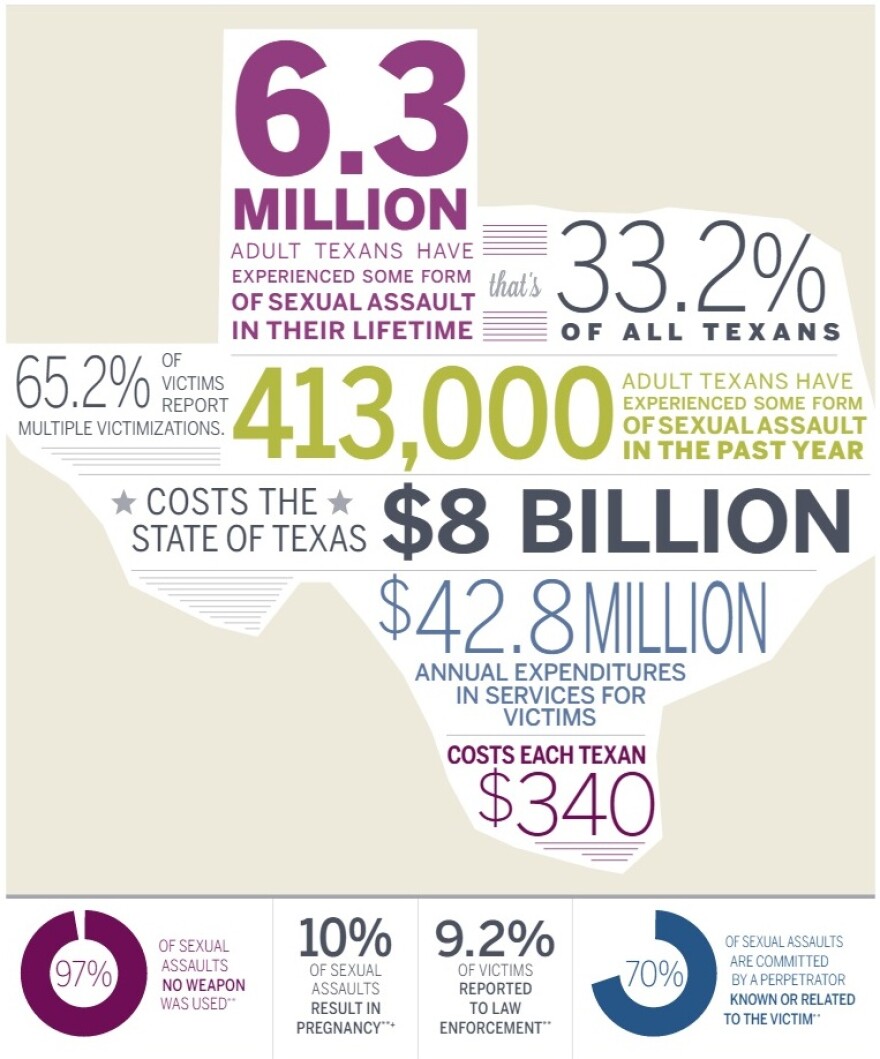The way people in Texas define sexual assault has broadened quite a lot over the last ten years. Texas law prohibits not only physical sexual assault, but also forcing someone to participate in photos or movies and unwanted sexual experiences while intoxicated and unable to consent.
According to a new study by researchers at the University of Texas at Austin, sexual assault in Texas is much more common now than it was about 10 years ago.
"In fact, a staggering number of adult Texans have said 'I’m a victim of sexual assault,'" says Noel Busch-Armendariz, a professor and dean at the University of Texas’ School of Social Work and also the lead investigator of the new study that found 32 percent of Texans, or more than 6 million adults in the state, have experienced some form of sexual assault in their lives.
"What we want to do eventually is not bring shame to the people that this has happened to," Busch-Armendariz says. "The shame really belongs with the perpetrators of these crimes.”
She says the research is calling on the state to identify who’s at risk and why they’re at risk.

"A lot of people still buy into the mythology of what a righteous rape victim might look like,” says Annette Burrhus-Clay, the executive director of the Texas Association Against Sexual Assault. She points out that a victim can include someone who’s agreed to a date, accepted a ride or had a drink with a perpetrator. Over the last 12 years, however, the rate of reporting sexual assault in Texas has dropped in half, from 18 to 9 percent.
"We can’t just have public awareness campaigns and folks out there encouraging people to report if when they report nothing is happening," Burrhus-Clay says. "So I think that’s where we need to spend our energy, is to figure out why more of these cases aren’t moving forward, why we don’t believe women?"
According to the UT study, sexual assault among women is more common at 18 years of age and older, whereas for men it’s ages 17 and younger.




